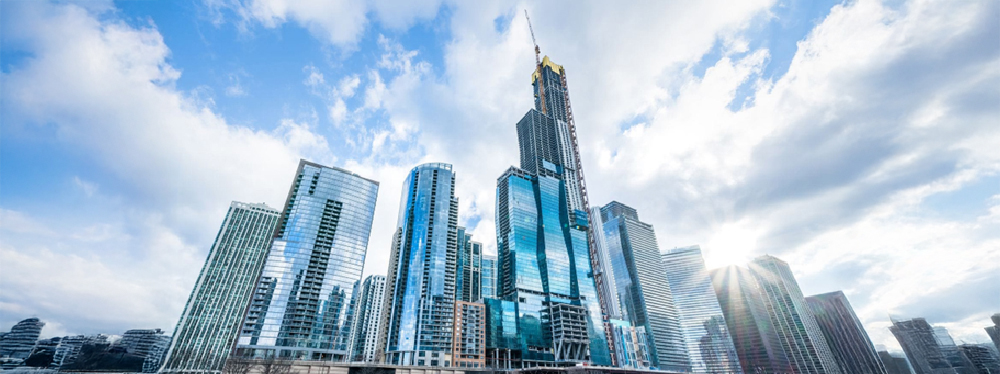Commercial real estate is the backbone of modern business, functionality, and investment. Unlike residential properties for a living, commercial real estate is spaces for business use, office buildings, retail, industrial, and mixed-use. It’s an asset class that generates income through leasing or rental agreements, so it’s a popular way to build wealth.
For high-net-worth individuals (HNWI) and luxury investors, commercial real estate is more than just property, it’s a way to diversify their portfolio, build long-term wealth and add to their overall financial stability. Let’s further explore the facts about commercial real estate.
What is Commercial Real Estate?
Commercial real estate (CRE) is property used for business and income. Not residential property which is living spaces for individuals or families, commercial property is for businesses, industries and retail outlets. This asset class includes office spaces, shopping centres, warehouses and mixed-use developments, all of which are the backbone of urban economies.
It combines physical value with financial growth, so it’s a popular choice for individuals and organizations to build wealth strategically.
Commercial vs Residential Real Estate
- Purpose: Commercial real estate is for income through business use, offices, or retail. Residential real estate is a personal living space, so returns are dependent on rental income or property appreciation.
- Lease Agreements: Commercial properties have longer lease terms of 3-10 years so landlords have more income stability. Residential leases are shorter and have more turnover.
- Income Potential: Commercial properties yield more returns than residential properties because businesses will pay more rent.
- Value: Commercial real estate value is tied to income, and residential property value is tied to market and location.
- Management: Commercial properties require more expertise and resources as they service businesses with specific operational requirements.
Read Also: The Rise of Rural Land Investment: Why Countryside Plots Are Gaining Popularity
Types of Commercial Real Estate
Commercial real estate is diverse so there’s a property type to suit every investment goal and business need. Each type has its benefits and challenges, so investors must choose according to their objectives and market conditions.
1. Office Buildings
Office buildings are the backbone of commercial real estate and house businesses, from startups to multinationals. They are classified into:
- Grade A: High-end office spaces in prime locations, modern facilities, latest technology, and top-notch infrastructure.
- Grade B & C: More affordable spaces are found in suburban areas or older buildings for smaller businesses. Office buildings tend to have long-term tenants so stable rental income.
2. Retail Spaces
Retail properties house businesses like shops, malls, and supermarkets. They are designed to attract foot traffic and are usually located in high-visibility areas. Examples are:
- High-Street Retail: Boutiques and stores on main streets.
- Shopping Malls: Large complexes with multiple retailers, restaurants and entertainment venues. Retail spaces have high consumer demand and high rental rates, especially in prime locations.
3. Industrial Properties
Industrial real estate supports logistics, manufacturing, and warehousing needs. These properties are in demand due to the growth of e-commerce and supply chain industries. Types are:
- Warehouses: Storage and distribution facilities.
- Manufacturing Units: Spaces for production.
- Flex Spaces: Properties combining office and industrial uses for small businesses.
4. Mixed-Use Developments
These properties combine residential, commercial, and recreational spaces into one development, liveable communities. Examples are developments with retail on the ground floor, offices above, and residential units on the upper floors. Mixed-use projects for modern urban living attract different types of tenants and multiple income streams.
5. Co-Working Spaces
With the rise of flexible work models, co-working spaces are a growing trend in commercial real estate. Shared office spaces for freelancers, startups and corporations looking for flexibility and affordability. Investors get high occupancy and rapid growth potential in this space.
Read Also: Key Amenities and Features at Rustomjee Belle Vie, Kasara
Benefits of Investing in Commercial Real Estate
Investing in commercial property has many benefits for both old and new investors. The income, growth, and diversification make it a solid and profitable investment strategy.
1. High Rental Returns
Commercial properties typically offer higher rental returns than residential properties. Businesses are willing to pay a premium for properties in prime locations, ensuring a steady cash flow. Additionally, longer leases reduce the risk of tenant turnover.
2. Long Term Growth
As cities grow and economies expand, the demand for good commercial properties increases. This consistent demand drives up property values over time, giving investors big capital growth. Properties in metro cities and urban areas are the most lucrative, with high returns on investment.
3. Portfolio Diversification
Commercial property is a physical asset that doesn’t move with the stock market. Adding commercial properties to your investment portfolio reduces risk and gives you a balanced approach to building wealth. The steady income and growth from commercial property can offset more volatile investments like shares.
4. More Stability with Good Tenants
Businesses leasing commercial space are often financially stable and pay rent on time. Large companies, in particular, sign long-term leases that give property owners a predictable income stream.
Luxury and Commercial Real Estate
Commercial property is not just an investment class for income generation; it’s a status symbol and luxury for high-net-worth individuals (HNWIs) and luxury investors. As demand for premium office space, high-end retail developments, and mixed-use projects grows, commercial property reflects sophistication and modernity.
Luxury investors look for commercial properties that have elegance, functionality, and prime locations. These investments add to the portfolio and are a lifestyle of exclusivity and long-term wealth creation.
Why High-Income Individuals Invest in Commercial Property
- Prestige and Status: Owning a premium commercial property in an iconic location means you’re financially successful and feel special.
- Diversification Benefits: Commercial property complements high-end residential investments and reduces risk and income streams.
- High Returns: Luxury commercial property generally yields higher rental returns and growth, especially in urban hotspots.
Luxury Elements in Commercial Property
Luxury commercial property goes beyond functionality by adding high-end features and amenities that attract top-tier businesses and brands. Examples:
- Premium Office Space: Modern buildings with luxurious lobbies, state-of-the-art technology, concierge services, and green certifications that appeal to multinational companies.
- High-End Retail: Exclusive shopping centers with flagship stores of global brands, fine dining restaurants, and upscale entertainment options.
- Hospitality-Inspired Design: Adding rooftop terraces, wellness zones, and art installations to commercial property.
How to Invest in Commercial Real Estate
Investing in commercial real estate requires planning, knowledge, and options. Whether direct or financial, there are many ways to get in.
1. Direct Purchase of Properties
Buying properties outright gives you full ownership and control. You can choose from office, retail or industrial properties based on your goals. However direct ownership requires a lot of capital and active management, so it’s best for experienced investors.
2. Real Estate Investment Trusts (REITs)
REITs allow you to invest in commercial real estate without owning properties outright. These trusts pool funds to invest in income-generating properties and offer:
- A low entry point, allowing smaller investors to participate.
- Liquidity, so that shares can be traded on the stock exchange.
- Diversification, therefore, is exposure to multiple properties and sectors. REITs are perfect for those who want passive income and minimal management.
3. Partner with Developers
Partner with established developers like Rustomjee and get exclusive opportunities to invest in prime commercial projects. The benefits of partnering with developers are:
- Bespoke properties designed for high-end tenants.
- Professional management and maintenance services.
- Brand reputation, so you know you’re getting quality and market relevance.
Factors to Consider Before Investing
Investing in commercial real estate can be very rewarding but requires a 360-degree approach. From the property’s location to the tenant’s quality and the associated costs, every factor can impact your returns and long-term success as an investor. Below, we’ll go through the key considerations to ensure you invest smartly.
1. Location and Accessibility
The location of a commercial property is key to its success.
- Prime locations in metro cities or business districts mean high visibility and tenant demand.
- Accessibility to transport links, highways, and nearby infrastructure like banks, restaurants, and hotels adds to the property’s appeal.
- Areas with planned developments or improving neighborhood amenities mean huge appreciation potential and are perfect for long-term investments.
2. Market Trends and Property Demand
Understanding the current market trends is crucial before investing in commercial real estate.
- Look for sectors that are in high demand, like office spaces in IT hubs or retail outlets in urban areas.
- Economic indicators like GDP growth and employment rates can indicate stable tenant demand.
- Analyze how competitor properties perform to get an idea of rental rates and vacancy risks in the area.
3. Tenants and Lease Agreements
Tenants’ quality and stability affect rental income.
Corporate tenants or established businesses sign long-term leases, reducing vacancy risk. Review lease agreements for favorable terms like rent escalation clauses and maintenance cost responsibilities.
Tenants who are financially stable and have a good reputation contribute to the overall security of the investment.
4. Associated Costs
Investors must account for various costs of commercial properties, including maintenance, property taxes, and insurance.
Luxury commercial spaces require more maintenance to maintain premium standards. Property taxes can vary greatly depending on location and type of property. Comprehensive insurance is essential for protecting against property damage or liability claims, ensuring long-term financial stability.
Conclusion
Commercial real estate is a powerful investment tool for rental income, capital appreciation, and portfolio diversification. By focusing on location, market trends, and tenant quality, you can make informed decisions and get better returns.
Looking for luxury commercial properties? Rustomjee has it all. With a legacy of excellence, Rustomjee’s bespoke projects combine functionality and luxury to meet modern investor’s needs. Check out Rustomjee’s commercial properties and take your investment to the next level.
FAQs
- How does the zoning of a commercial property impact its value?
The zoning of a commercial property determines its allowable use, affecting its marketability, potential revenue, and overall value. Properties in zones that allow for high-demand businesses often see higher returns.
- What are common risks associated with investing in commercial real estate?
Risks include market fluctuations, vacancies, property maintenance costs, and tenant defaults. These factors can impact rental income and the property’s long-term value.
- How can the local economy influence the performance of commercial real estate?
The local economy plays a significant role in the performance of commercial real estate, as factors such as employment rates, business growth, and infrastructure development can directly affect demand for commercial spaces and rental rates.







